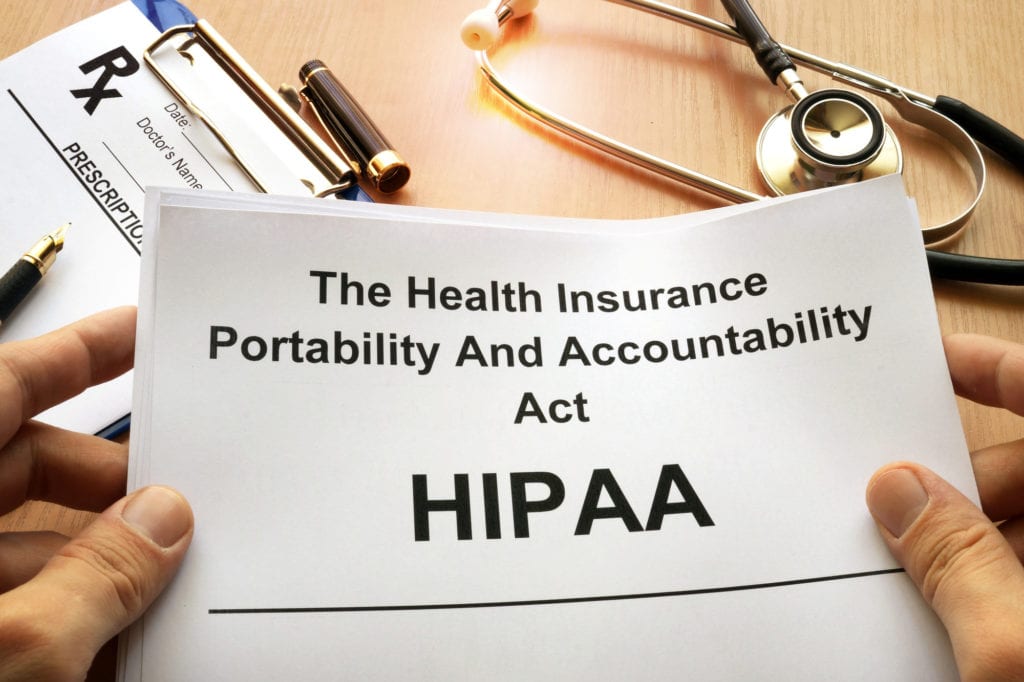What are the HIPAA Compliance Requirements for Live Answering Services?
 HIPAA compliance requirements are stringent and you could be in trouble if your call answering service violates them. Here’s a quick guide to the rules.
HIPAA compliance requirements are stringent and you could be in trouble if your call answering service violates them. Here’s a quick guide to the rules.
The Department of Health & Human Services had more than 23,000 complaints of HIPAA violations in 2016. It’s hard to stay on track with the many HIPAA compliance requirements, but utilizing a live answering service can help.
Many doctor’s office receptionists aren’t aware of HIPAA privacy and security rules. A live answering service, on the other hand, can be HIPAA certified and must legally abide by these rules.
Learn what regulations make a live answering service at a medical call center HIPAA compliant.
What is a HIPAA Breach?
To violate HIPAA, medical records have to change hands between unauthorized users. Most HIPAA violations are honest mistakes by untrained workers. However, breaches of data and security and misplacing or losing files or data storage devices are also common problems.
Research shows that there are more HIPAA violations through hacking and malware due to the reliance on cloud storage. New technology, along with a lack of proper online security, allows hackers to get patient information and use it for their own purposes.
Guide to HIPAA Compliance Requirements
Live answering services and medical call centers must abide by certain regulations so as not to violate HIPAA’s privacy and security rules. The HIPAA Journal helps explain the requirements for compliance.
HIPAA Compliance Checklist
To be HIPAA compliant, your live answering service must follow The Security Rule. This rule applies to people that have access to electronic personal health information, or ePHI. Live answering service and call center workers get training in the appropriate ways to handle ePHI.
To remain HIPAA compliant, companies should:
- Use high-tech encryption techniques
- Ensure secure transmission of voice, text, and other electronic records
- Require authorization from the client
- Adherence to “message lifespans”
Getting Authorization from the Client
Obtaining client authorization is one of the most important HIPAA compliance requirements. It’s also the only one that involves someone other than a trained professional.
If you represent a live answering service, make the client aware of their right to privacy with their personal medical and health records. You can do this by having an opt-in message, or by requiring patients working with doctors you represent to sign a form.
There are many ways to make sure you have authorization from the client. You must get their permission before transmitting their medical records to remain compliant.
Ensuring Client Security
Using an up-to-date version of software and messaging programs are important for telehealth specialists. Decrease your likelihood of mistaken information dissemination with encryption software and secure texting.
Incorporating “message lifespans” can also be good for HIPAA compliance. Your live answering service should only need to keep messages for a given amount of time. An information technology professional can put this procedure in place at your facility.
Learning More
Not all live answering services are HIPAA compliant. Our services use software to help control the flow of electronic personal health information (ePHI). We also train all our employees in HIPAA compliance requirements.
Data management and encryption techniques are part of our promise to uphold the highest ethical standards of our field. If you’d like to learn more about what makes our call service great, check out our FAQ.

Leave a Reply